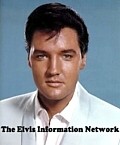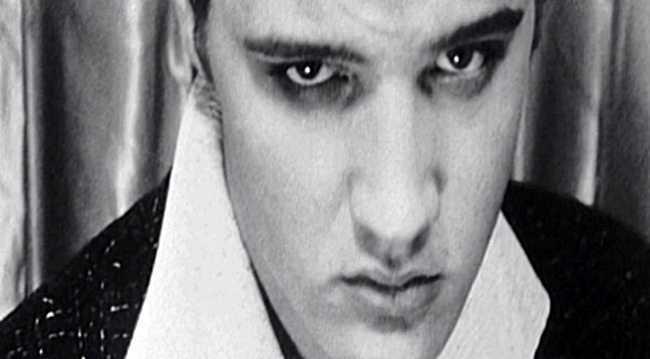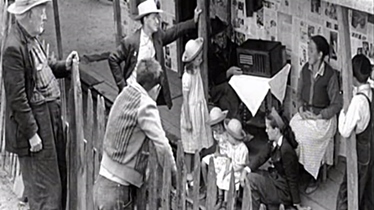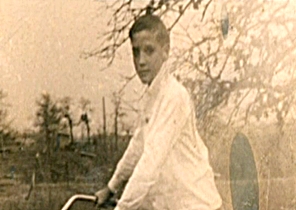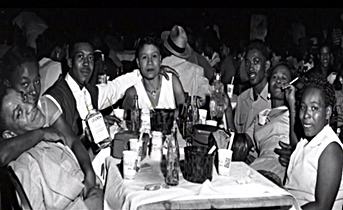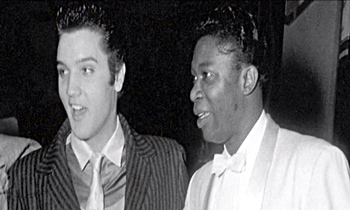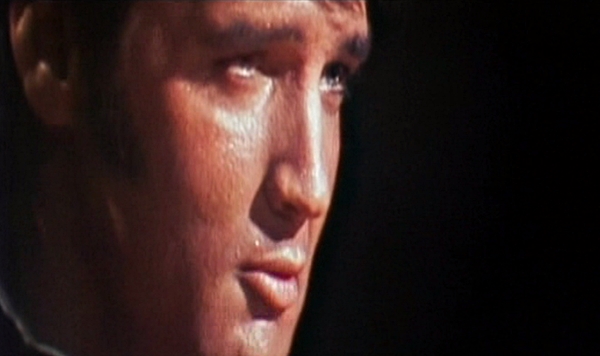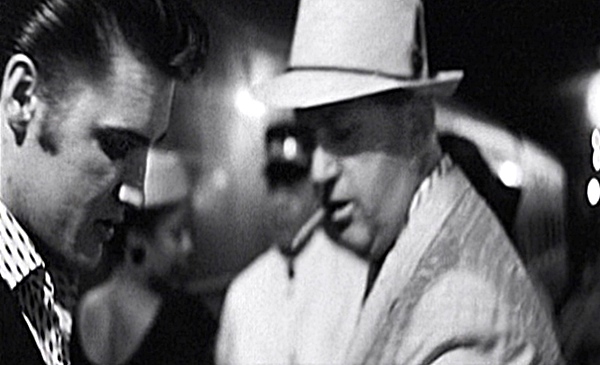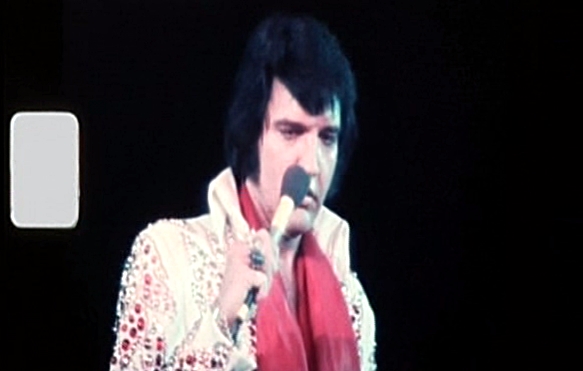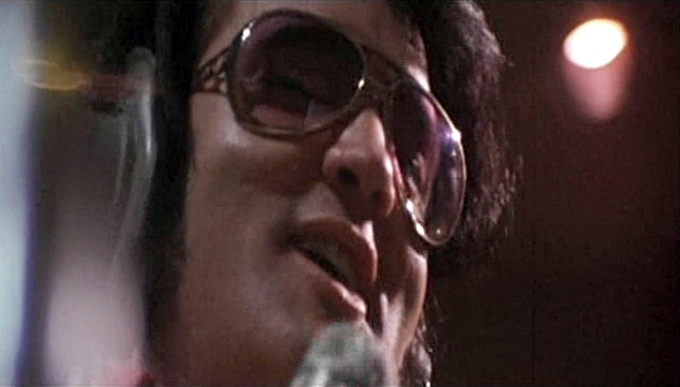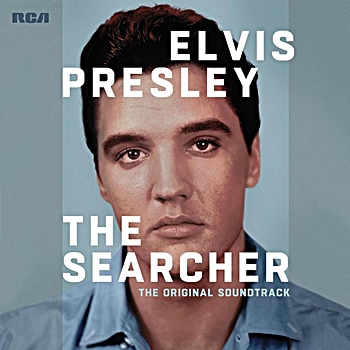 |
 |

Opening thoughts
Before discussing Thom Zimny's powerful documentary film (and its impressive three and a half hours running time), it is worth considering what its title signifies? Elvis Presley: The Searcher? Is it the artist searching for meaning within or through his songs? Or is it the man searching for meaning in his life? Or both? While the two descriptors (above) taken from the film’s soundtrack set may or may not fully answer those questions, they at least offer interesting perspectives. In explaining the theme of Elvis Presley: The Searcher, Warren Zanes (writer) may have said it best:
The good It is interesting that in the variety of many, many reviews about Elvis Presley: The Searcher some emphasise the music theme while others focus on the documentary’s biographical strengths. The young Elvis' music roots are deftly defined and developed throughout the first part which weaves a wondrous tapestry filled with color, music, trials and tribulations - an incredible journey which climaxes at heights previously unheard of.
In its first part there is a vast amount of wonderfully expressive archival material (stills, video and commentary) which provide a great framework to drive the underlying story and provide a real feel for Elvis growing up and how his music career reached its “Presleymania” peak in the mid 1950s.
Critically, Elvis and African-American music are portrayed as a simbiotic relationship and not a predatory one. At the outset, this sets a positive contextual tone for what is an engrossing film documentary. In the context of Elvis being a "searcher" the strongest evidence, musically, are his gospel recordings. I acknowledge that there is fine consideration of the How Great Thou Art album in the second part. Given the "searcher" theme, Zimny could have made more of the connection between Elvis' "searching" and gospel music. Not surprisingly, the biographical element of Elvis Presley: The Searcher is at its best in the first part. The time period involved (birth to Army) offers the most involving biographical material. Elvis’ importance as a trailblazer for future stars (and its downside) is strongly stated:
A real strength of the film are the narrative comments which background the visual canvas of the film and are predominately thoughtful and illuminating. The observations often come from those who knew or were influenced by Elvis and include Bruce Springsteen, Tom Petty and celebrated rock writer, Nik Cohn. The weakest of the observations are by the film’s Executive Producers (Priscilla Presley, Jerry Schilling), not because they lack validity, but because they are driven by EPE’s strategic direction for how the “Elvis story” is told and belie the fuller and richer experience that was his life and music. The documentary progresses generally as a linear narrative with episodic glances into Elvis’ psyche and its “searcher” theme. Motifs are cleverly used and Elvis Presley: The Searcher is at its best when it sets the socio-cultural context for its subject with in-depth analysis and archival material. In this respect, part 1 is narratively stronger than its concluding part.
The bad Elvis Presley: The Searcher, while ostensibly about Elvis’ music(?), ends up trying to have the best of both worlds by being a composite bio-music documentary. Part 1 clearly overshadows part 2 through its greater offering of deep analysis and archival materials of Elvis the person and Elvis the musician. And as did Guralnick in his two-volume written bio, part 1 of Elvis Presley: The Searcher ends when Elvis enters the Army. This leaves part 2 to cover the period 1960 to 1977. Part 2 is still interesting but suffers due to having less depth.
However, just as Elvis’ music is not fully explored in the documentary, this is also true for the biographical element of his story. At times, important themes are not developed. For example:
Colonel Parker is appropriately portrayed as an astute manager for Elvis in the 1950s but as someone out of touch and self-serving for the rest of Elvis’ career. The trope of the artist stifled by a self-serving manager/promoter is well drawn. The Colonel's 'carny mentality' was not well suited to a more sophisticated music industry in the 60s and 70s. Blame for Elvis' lack of creativity can also be placed at the Colonel's feet. Films allowed him to put Elvis in front of the most people for the least work. The Colonel was adept at limiting exposure to opportunities. However, a contractual commitment to three films a year meant soundtrack albums took precedence over studio recordings. In relation to Elvis’ triumphant Aloha From Hawaii satellite concert, writer Jon Landau, perceptively comments that:
By being very selective in what aspects of the Elvis (as a person) story are covered, a number of important things are ignored, such as Marion Keisker and her key role in Elvis’ musical start, Elvis’ romantic relationships besides Priscilla, Elvis’ drug dependence, the Memphis Mafia, etc. At least a number of these impacted Elvis’ “search”. Having Priscilla Presley and Jerry Schilling as executive producers was always going to be problematic and their (corporate) impact on the content of the documentary is evident. Also, any serious examination of Elvis’ music necessarily has to provide material commentary on elements (it’s not as though Elvis only recorded a few movie songs!) of the Elvis catalog which may not be seen to offer real creative value. Part 1 devotes significant and deserved time to Elvis’ film career in the 50s - in stark contrast to the documentary’s dismissive and minimalist treatment of his subsequent films in part 2. In part 2 there is "blink and you'll miss it" discussion of Elvis’ film recordings in the 60s (a period that made up more than one third of his career!), and only a brief acknowledgement of what they meant for him as a “searcher”. Surely Elvis' mid-sixties connection with the Self Realization Fellowship Lake Shrine in California was a key part of his genuine search for something deeper outside his movie roles and life with Priscilla? Zimny addresses Elvis’ 1960s film career in its visual media form, rather than offering any depth analysis of its music content and impact on Elvis as a "searcher". Jerry Schilling’s observations on Elvis’ declining film canon, lower budgets, weak scripts and the influence of the Colonel are all valid, and while they provide an explanation for declining quality, they are not about the music. Elvis’ movies in the 60s had a number of creatively nuanced and often quite satisfying recordings, for example, Can't Help Falling In Love, Lonely Man (recorded for Wild In The Country but cut from the final film) and Return To Sender, although admittedly, most of Elvis' celluloid output in that period, while often pleasant, is quite forgettable. And while they may not symbolise an artist searching for something surely they suggest why the artist eventually does, once again, search? There was scope for meaningful interviews with senior members of Elvis' film crews (directors, producers), co-stars and music academics and critics – with questions linked to Elvis’ musically creative slide. I have the same criticism of the documentary’s treatment of Elvis’ Las Vegas and concert recordings in the 70s. If the film is really about the man and his music, this element cannot be ignored or given only cursory treatment (as it has been).
Elvis’ decline in his post Aloha years is essentially served by a few screen graphics rather than any real narrative analysis – yet, in his final few years Elvis “the searcher” was arguably at a peak, the pain of his search clearly reflecting itself in number of his live performances, notably How Great Thou Art, Unchained Melody and Hurt. Overall, part 2 of Elvis Presley: The Searcher often seems rushed and lacking depth, particularly when compared to the treatment afforded Elvis in the 1950s in Part 1. While I understand the producer’s reasons for essentially ignoring the musical creativity (or lack thereof) of Elvis’ 1960s film career and his last few years (both musically and biographically), it nevertheless devalues the great work and depth of thought offered in the film’s opening part.
Final thoughts Returning to the promotional description for Elvis Presley: The Searcher stated in introducing this review......in watching the film documentary, do we find the artist who lost something and found it in a song? In my opinion, not really. At the beginning of his career one could not say Elvis had lost something, rather he was "discovering" something great within himself. Certainly, by the end Elvis was desperately “searching” for meaning in his life and expressing this in his music, yet this period is not explored in depth in the documentary. Despite its undoubted strengths Thom Zimny's explorative treatise about Elvis struggles to live up to its title. It is creatively conflicted in the sense that to really explore Elvis' “search” for meaning in his life has to go beyond his music. On a personal level, the period when Elvis was most a "searcher" is arguably from the mid 1960s when his career had stalled and self doubt was creeping into his mind, yet the strongest narrative exposition occurs in the first part of the film prior to 1960. Trying to explain, through his music, Elvis' search for meaning is also problematic as that elusive concept of "meaning" could not really come solely from music. And throughout his career, te music that brought Elvis closer to "meaning" was gospel (for which the two-part He Touched Me The Gospel Music of Elvis Presley is a seminal documentary). As it is presented, the viewer cannot accept Elvis Presley: The Searcher in only a music context, for the documentary continually strays outside the theme of the artist searching within his songs into straight biography territory. There is nothing wrong about this except that it does not reflect the apparent intent behind the making of the film. Verdict: Despite its weaknesses, Elvis Presley: The Searcher is a powerful, engrossing and enjoyable film, ranking as one of the two* best documentary films ever made about Elvis. It resonates with thoughtful analysis and sublime archival material in its first part and while structurally and narratively weaker in its second part, nevertheless holds the viewer’s interest from beginning to end. The film stresses the positive over the negative and in so doing will please most fans. However, by ignoring or glossing over the negative, the film necessarily fails to achieve status as a full and truly rigorous examination of Elvis, his music and his "search" for meaning.
HBO documentary Review by Nigel Patterson.
|
|
